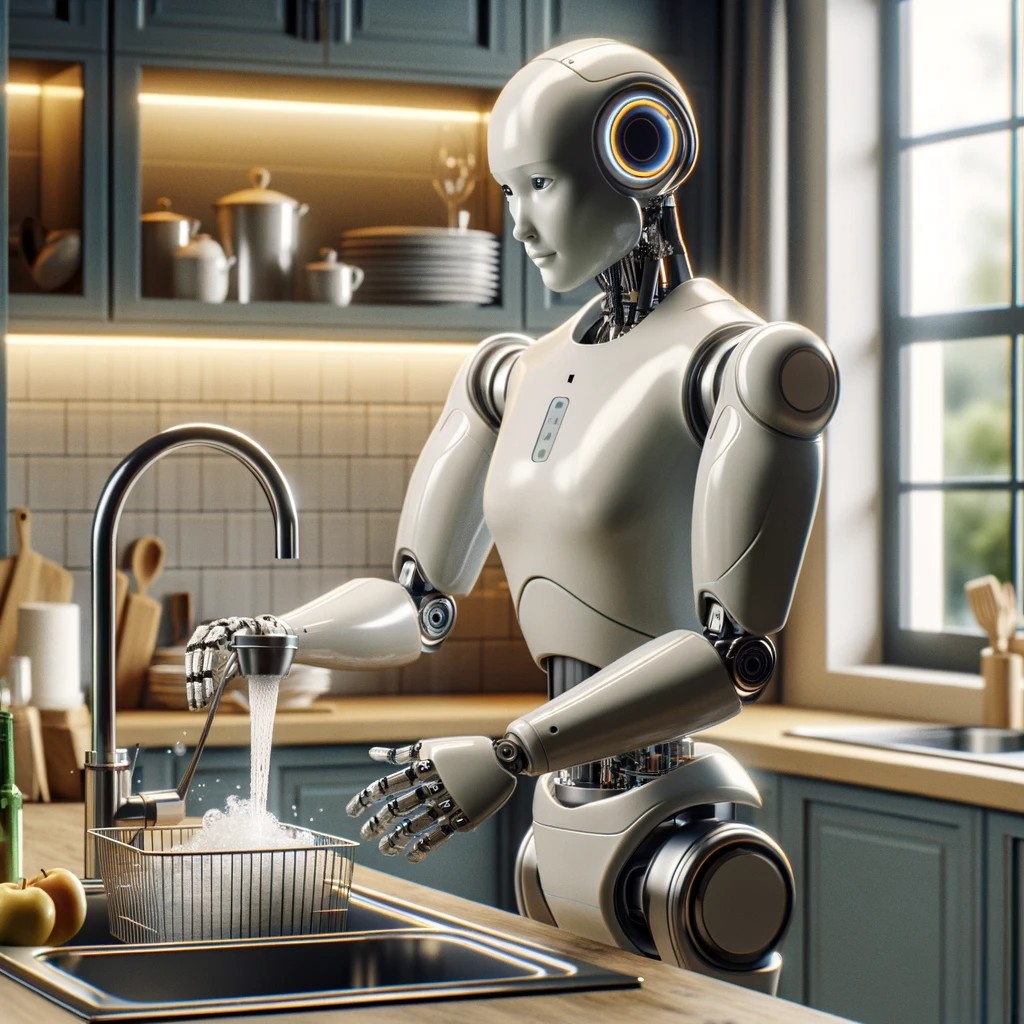In a move that echoes science fiction visions of a future where humanoid robots seamlessly integrate into our daily lives, robotics startup 1X has unveiled its latest creation: NEO. This sophisticated bipedal robot is designed to autonomously navigate homes, understand verbal commands, grasp objects, and complete household tasks, pushing the boundaries of what was once deemed exclusive to human capabilities. This groundbreaking announcement comes on the heels of 1X securing an impressive $100 million in Series B funding, setting the stage for a potential revolution in the field of domestic robotics.
The rise of NEO – A new era for humanoid robot assistance
1X has positioned itself at the forefront of the race to bring humanoid robots into households, with NEO as the star player in its lineup. Capitalizing on its lifelike appearance and advanced AI, NEO promises to shift robotics technology from industrial and logistics functions to playing a vital role in our domestic lives. The recent injection of $100 million in Series B funding, spearheaded by EQT Ventures, signifies a pivotal moment for 1X as it aims to dominate the burgeoning field of domestic robotics.
Bernt Øivind Børnich, CEO of 1X, expressed enthusiasm about the support from leading investors, emphasizing the company’s mission to deploy androids with Smart Behavior into new markets. The focus now turns to scaling data collection strategies for Embodied AI and making NEO accessible to consumers, marking a significant leap towards a future where humanoid robots become indispensable household helpers.
The evolution from EVE to NEO
NEO is not 1X’s first foray into the world of humanoid robotics. Building on the success of its predecessor, EVE, which demonstrated remarkable versatility across Europe and the United States, NEO represents a leap forward in functionality. While EVE showcased a humanoid head and autonomously moving arms, NEO’s bipedal locomotion mimics human movement, allowing it to navigate and interact within a home environment more effectively.
The integration of advanced AI is a key feature, enabling NEO to adapt and learn from its surroundings. This continuous learning process enhances its ability to undertake complex domestic tasks that were once the exclusive domain of humans. As 1X positions itself to revolutionize domestic assistance, the expectations surrounding NEO’s capabilities are high, fueled by the company’s commitment to harnessing the potential of AI and robotics to meet global labor demands.
The competitive landscape
As 1X unveils NEO, it steps into a competitive arena dominated by major players like Tesla and Boston Dynamics. Tesla, led by visionary Elon Musk, is developing its humanoid robot, “Optimus,” showcasing advanced features such as improved hand movements and a slimmer figure. This signals Tesla’s commitment to revolutionizing the robotics industry and raises the stakes in the race for dominance in the burgeoning field of humanoid robots.
On the other hand, Boston Dynamics has already achieved legendary status in the field, showcasing robots equipped with advanced mobility and intelligence designed for challenging environments. While Boston Dynamics focuses on industrial plants and distribution centers, 1X’s ambition lies in bringing humanoid robots directly into homes, setting the stage for an intriguing competition among these technological giants.
As 1X embarks on its journey to revolutionize domestic assistance with NEO, the question looms: Are we on the brink of a new era where humanoid robots become integral parts of our households? With competitors like Tesla and Boston Dynamics also vying for supremacy, the future promises a fascinating convergence of AI and robotics, reshaping the way we live and work. Will NEO and its counterparts redefine the relationship between humans and technology, or are we on the cusp of unforeseen challenges in this quest for technological innovation? Only time will tell as we navigate the uncharted territory of humanoid robots in our homes.





